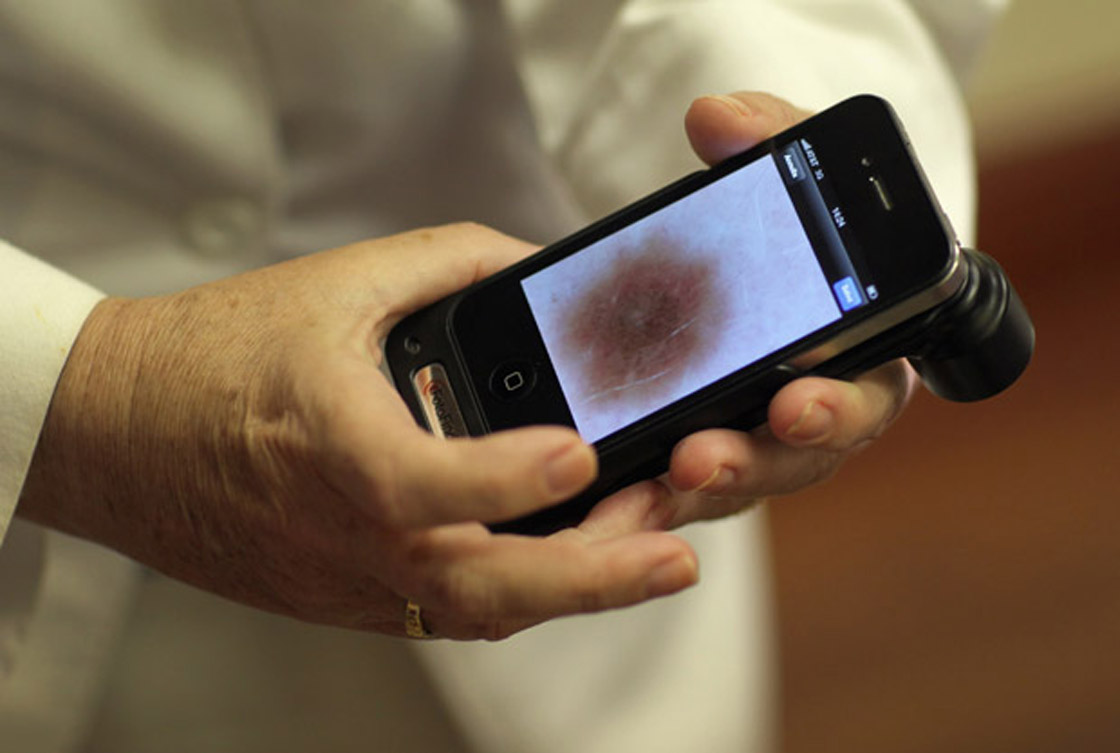TORONTO — New spots on the skin or moles that change shape, size or colour are traditionally warning signs of skin cancer risk. But new U.S. research is shedding light on a potential link to breast cancer.

Scientists from Harvard University suggest that women with a greater number of moles are more likely to develop breast cancer. Their findings are based on two separate studies that followed nearly 165,000 women over the course of about two decades.
But does this mean that skin spots should be a screening for breast cancer? Canadian doctors say it’s too early to recommend any changes in clinical settings.
“The risk of moles with skin cancer is much, much higher than what they’re seeing with breast cancer. It’s interesting and needs to be further studied,” Dr. Lisa Martin, a Princess Margaret Cancer Centre scientist, told Global News.
“But if there’s advice: I wouldn’t change anything, the guidelines for breast cancer screening will hold. I wouldn’t right away say moles are going to be used in screening in other types of cancer,” Martin said.
READ MORE: 7 findings about Canada’s best and worst cancer-fighting cities
Instead Martin said the research may open doors to exploring how certain cancers are related.
Martin and her Princess Margaret Cancer Centre colleagues have between studying the link between thyroid cancer, breast cancer and moles, too.
The research is preliminary but they’ve noted a higher risk of thyroid cancer if patients have more moles. It was the same with breast cancer.
“We’ve seen an association with a higher number of moles with a higher amount of mammographic density, which is a very strong risk factor for breast cancer,” Martin said.
In the U.S. research, published Tuesday in the journal PLOS Medicine, the doctors looked at two groupings: 74,523 nurses followed for 24 years and 89,900 teachers in France followed for 18 years.
READ MORE: Breast cancer and genetics – Angelina Jolie’s double mastectomy
If the women self-assessed that they had a lot of moles on their body, their risk of breast cancer increased. Take, for example, the U.S. cohort – women who counted 15 or more moles on their left arm were 35 per cent more likely to be diagnosed with breast cancer than women who reported no spots. In the French grouping, women who said they had “very many” moles had a 13 per cent higher breast cancer risk than women without any moles.
But keep in mind: the link wasn’t as significant after adjusting for known breast cancer risk factors, such as family history.
The study authors concede, though: the findings are limited to self-reporting, it was only based on white women, and while the number of moles could be a marker for breast cancer, it’s hard to tell how it would stack up against other established risk factors already used.
READ MORE: Canadian skin cancer rates not a cancer success story
For now, doctors say moles are major risk factors predominantly for skin cancer.
Dr. Prithwish De, a Canadian Cancer Society epidemiologist specializing in cancer surveillance, said that if atypical moles surface, show them to your doctor.
“Most moles are harmless, but a person who has many moles is more likely to develop melanoma,” he told Global News.
Moles indicate changes in melanocytes, which are the melanin-producing cells in the skin that give skin, hair and eyes their colour. On the other hand, breast cancer arises from a different kind of cell with sex hormones, such as estrogen, playing important roles in the development of the cancer, De explained.
“Until the underlying mechanism between moles, sex hormones, and breast cancer is better known, we should only rely on the number of moles as an indicator of skin cancer risk,” De said.
Read more about breast cancer screening here.
Read more about melanoma here.
carmen.chai@globalnews.ca
Follow @Carmen_Chai



Comments